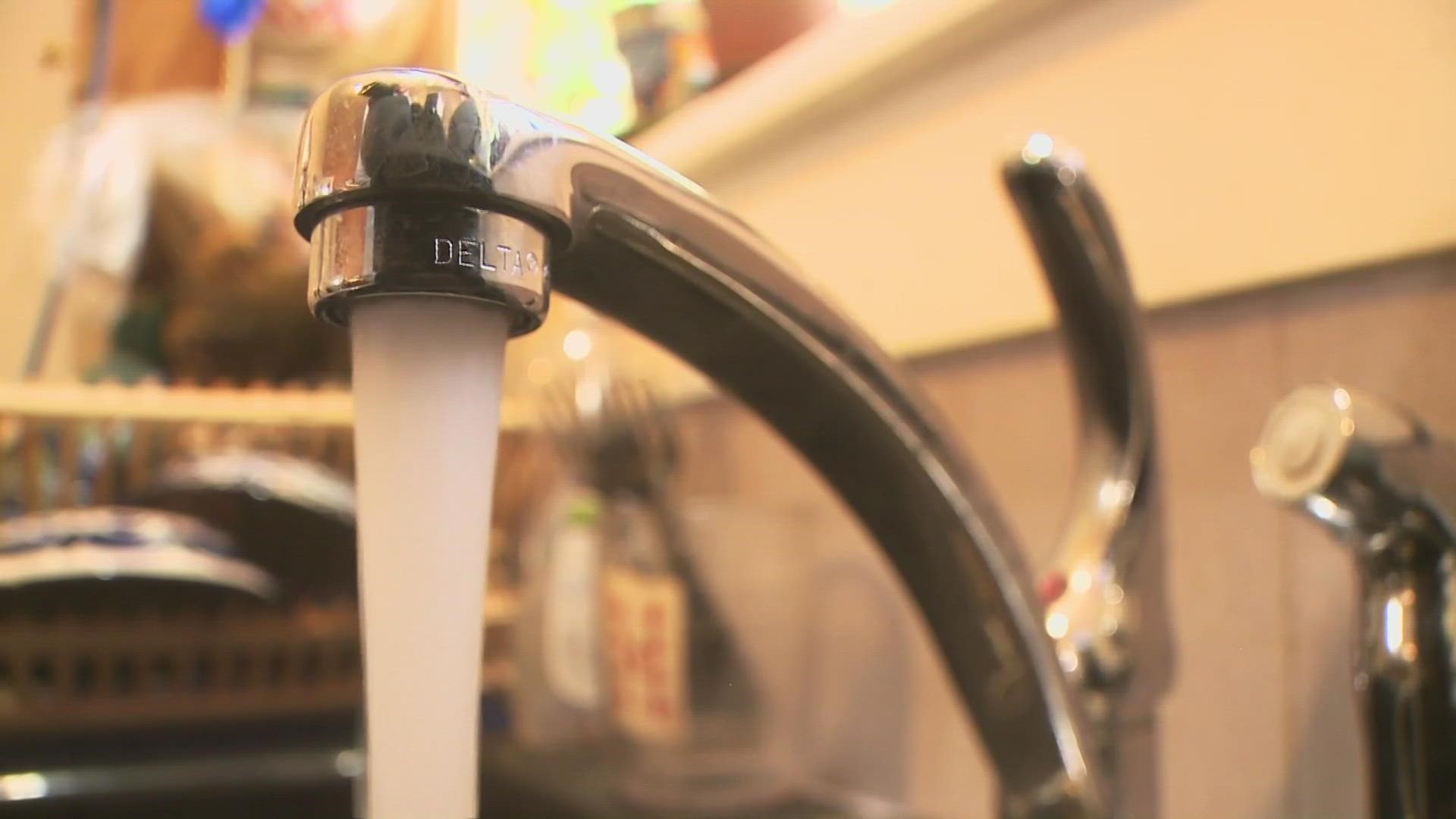PHOENIX — California is the lone absence in a multi-state plan to address massive cuts to Colorado River water that the federal government has mandated.
The Bureau of Reclamation told the seven states that rely on Colorado River water -- Wyoming, Colorado, New Mexico, Nevada, Utah, Arizona and California -- to come up with a plan to cut between two and four million acre-feet of water. An acre-foot of water is about the amount of water three homes use in a year.
If the states failed, the Bureau of Reclamation said it would make the cuts for them.
Monday, six of the seven states delivered a letter to the bureau outlining a plan keep negotiating amongst themselves.
That plan did not address all of the mandated cuts.
But the plan also did not include California, which is the largest user of Colorado River water.
“I think they met the deadline in a way, because they came up with a next step," Sarah Porter with the Morrison Institute for Public Policy at ASU said.
California water authorities said they would submit their own plan to deal with the record-breaking megadrought.
The chairman of the California Colorado River Water board sent a statement that said, in part, "California was not able to provide input on the six-state proposal and detail our state’s specific concerns."
California is at the bottom of the list when it comes to cutting its water delivery. It has what's called "senior water rights".
Arizona, on the other hand, has junior water rights, meaning it gets cut first. Arizona accepted those rights as part of a deal to secure federal funding for Central Arizona Project in the 1960's.
Now, with the river delivering less and less water, the states are looking to renegotiate those rules in the face of a severe drought that has lasted for than 22 years.
Experts said the Bureau of Reclamation can decide to accept the plans, or it could go ahead with its own plan.
Here is the full statement from JB Hamby, Chairman of the Colorado River Board of California and Colorado River Commissioner for the State of California:
"California’s water agencies are committed to working with all Colorado River basin states to stabilize reservoir elevations, protect critical infrastructure, and avoid unacceptable risks to California and the Lower Basin. All basin states agree that water use reductions are necessary to maintain our future water supply — the question is how we implement them.
Water agencies in California will be submitting a proposed modeling framework for additional water use reductions based on what is practical, voluntary, and achievable through 2026 in a way that works within the existing body of laws, compacts, decrees, and agreements known collectively as the Law of the River.
At this time, the modeling proposal submitted by the six other basin states is inconsistent with the Law of the River and does not form a seven-state consensus approach. Unfortunately, California was not able to provide input on the six-state proposal and detail our state’s specific concerns. While we believe the six-state approach raises important concerns about the operation of the Colorado River system, the forum to address these core issues is within the renegotiation of the 2007 Interim Guidelines which expire at the end of 2025.
California remains focused on practical solutions that can be implemented now to protect volumes of water in storage without driving conflict and litigation. Our state’s voluntary commitment to conserve 400,000 acre-feet of water a year through 2026 is the only concrete proposal submitted to date from any basin state’s water users as part of a solution to address the current water shortage.
We are hopeful that constructive dialogue and mutual understanding between the basin states and the United States moving forward can only to the benefit of the Colorado River system and all who rely on it."
Up to Speed
Catch up on the latest news and stories on the 12 News YouTube channel. Subscribe today.

